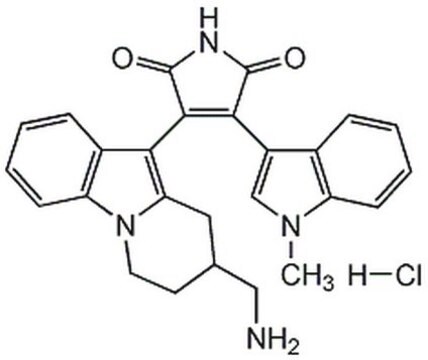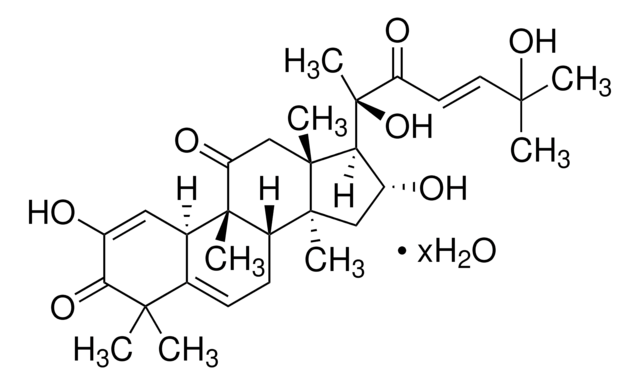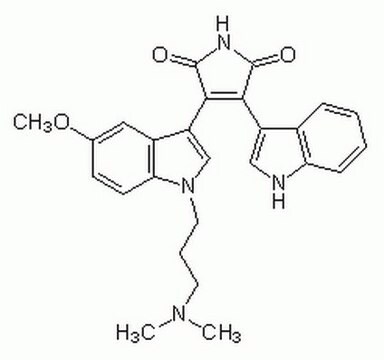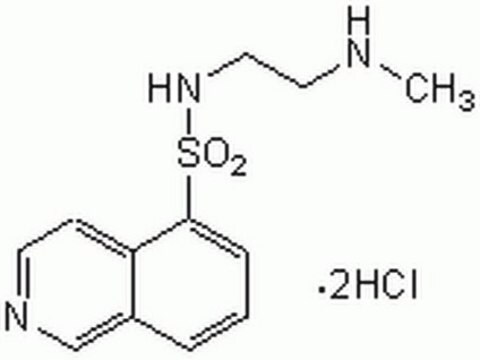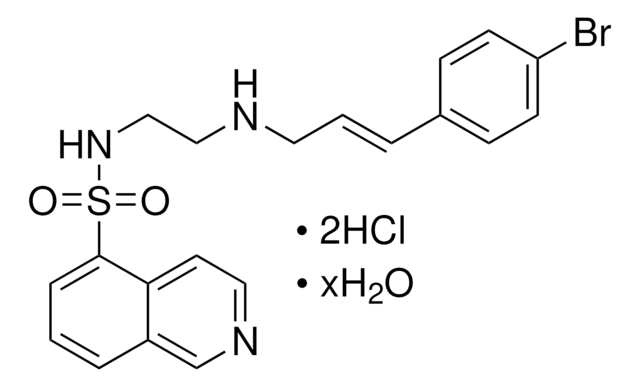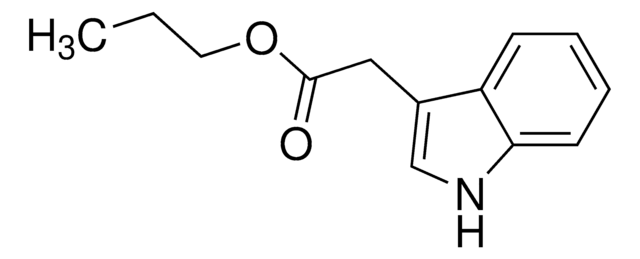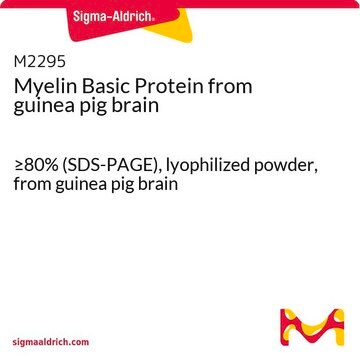238590
Cucurbitacin I, Cucumis sativus L.
A cell-permeable and irreversible bitter triterpenoid compound (NCI identifier: NSC 521777) that displays anti-proliferative and antitumor properties both in vitro and in vivo.
Synonym(s):
Cucurbitacin I, Cucumis sativus L., JSI-124, STAT3 Inhibitor XIV
About This Item
Recommended Products
Quality Level
Assay
≥95% (HPLC)
form
solid
manufacturer/tradename
Calbiochem®
storage condition
OK to freeze
protect from light
color
white
solubility
ethanol: 10 mg/mL
DMSO: 100 mg/mL
shipped in
ambient
storage temp.
−20°C
InChI
1S/C30H42O7/c1-25(2,36)12-11-21(33)30(8,37)23-19(32)14-27(5)20-10-9-16-17(13-18(31)24(35)26(16,3)4)29(20,7)22(34)15-28(23,27)6/h9,11-13,17,19-20,23,31-32,36-37H,10,14-15H2,1-8H3/b12-11+/t17-,19-,20+,23+,27+,28-,29+,30+/m1/s1
InChI key
NISPVUDLMHQFRQ-MKIKIEMVSA-N
General description
Biochem/physiol Actions
JAK/STAT3
Packaging
Warning
Other Notes
Legal Information
Signal Word
Danger
Hazard Statements
Precautionary Statements
Hazard Classifications
Acute Tox. 3 Oral
Storage Class Code
6.1C - Combustible acute toxic Cat.3 / toxic compounds or compounds which causing chronic effects
WGK
WGK 3
Flash Point(F)
Not applicable
Flash Point(C)
Not applicable
Regulatory Listings
Regulatory Listings are mainly provided for chemical products. Only limited information can be provided here for non-chemical products. No entry means none of the components are listed. It is the user’s obligation to ensure the safe and legal use of the product.
JAN Code
238590-1MG:
238590-MG:
238590-1.1ML:
Certificates of Analysis (COA)
Search for Certificates of Analysis (COA) by entering the products Lot/Batch Number. Lot and Batch Numbers can be found on a product’s label following the words ‘Lot’ or ‘Batch’.
Already Own This Product?
Find documentation for the products that you have recently purchased in the Document Library.
Our team of scientists has experience in all areas of research including Life Science, Material Science, Chemical Synthesis, Chromatography, Analytical and many others.
Contact Technical Service